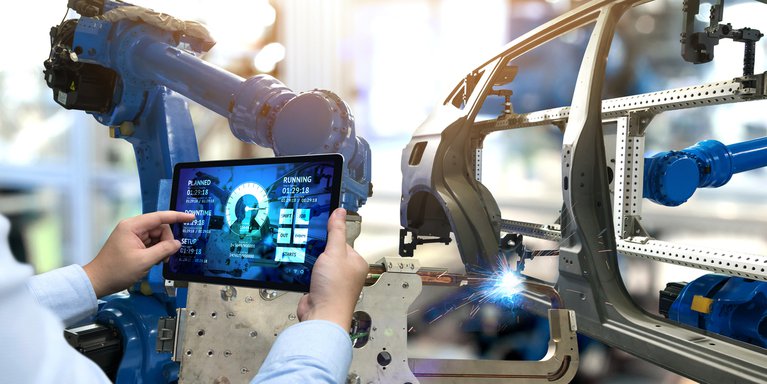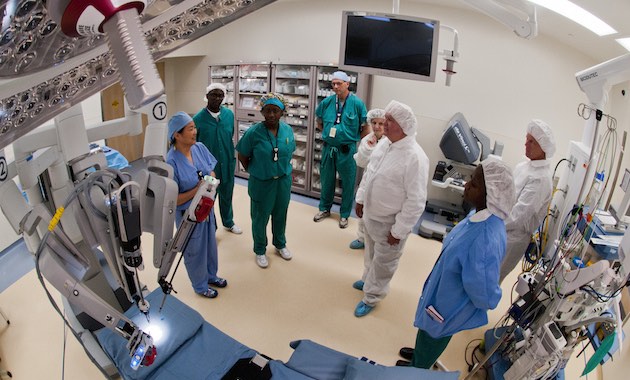Ads
In an era characterized by rapidly evolving technology, the transformation of work has become a topic of great relevance. We talk about how automation, machine learning, and artificial intelligence are reshaping work practices and jobs. This phenomenon is particularly notable in the labor market, where repetitive and predictable tasks are being replaced by automated systems, giving rise to a new work reality.
The objective of this text is to reveal how automation is revolutionizing the labor market. We will discuss the implications of this change in terms of opportunities and challenges for workers and businesses. We will also explore how the skills and competencies needed to thrive in the labor market are evolving as a result of automation.
Ads
Furthermore, it's important to highlight that automation is not only changing the way we work, but also how we think about work. This change affects not only businesses and workers, but also society as a whole. This text seeks to reflect on these issues and provide a vision of what the future of work might look like in an increasingly automated world.
Finally, we will address the role of education and continuing education in this new labor market. Automation presents both opportunities and challenges for workers and businesses, and it is essential to be prepared to adapt to this new reality. Ultimately, we hope this content provides a clearer understanding of how automation is revolutionizing the labor market and what we can do to successfully navigate this new environment.
Ads
Automation: The driver of change in the labor market
Automation is changing the way we work. It's not a new concept, but its pace and scope have increased significantly in recent years. automation technology It is not only redefining roles and responsibilities in the workplace, but also creating new opportunities and challenges.
Job replacement and creation
One of the main fears associated with automation is job loss. In fact, research suggests that up to 471% of jobs in the United States could be automated in the coming decades. However, the reality is more complex. While some jobs may be replaced by machines, automation is also creating new opportunities.
For example, automation is generating demand for roles in areas such as data analytics, artificial intelligence, and machine learning. These are fields that require specialized technical skills and offer competitive salaries. In turn, automation is driving job creation in areas such as sales and marketing, where human skills are still irreplaceable by machines.
Automation and job skills
Automation is changing the types of skills valued in the workplace. Technical skills, such as coding and data analysis, are in high demand. However, there is also growing recognition of the importance of soft skills, such as problem-solving and creativity.
Training and education
To take advantage of the opportunities offered by automation, it's vital that workers develop the necessary skills. This requires a shift in the way we think about education and training.
Rather than focusing solely on acquiring specific knowledge, there is a growing need to foster critical thinking and problem-solving. Furthermore, it is essential for workers to stay up-to-date with the latest technological advancements. This may involve participating in continuing education programs or obtaining certifications in relevant fields.
Automation and productivity
Automation also has the potential to increase productivity. By performing routine and repetitive tasks, machines can free up humans to focus on higher-value activities. This can lead to increased productivity and, ultimately, economic growth.

Examples of automation in the workplace
There are numerous examples of how automation is changing the workplace. Here are a few:
- In the manufacturing sector, robots are performing tasks that previously required human labor, such as assembling products or packaging goods.
- In the service sector, chatbots are taking over customer service tasks, such as answering questions or processing returns.
- In the healthcare sector, artificial intelligence is used to make diagnoses or even perform surgeries.
The future of automation
The future of automation is uncertain, but what is clear is that it will have a significant impact on the labor market. Workers, employers, and policymakers must be prepared to adapt to these changes.
Despite the challenges, automation also offers a number of opportunities. It can free workers from tedious and repetitive tasks, allowing them to focus on more meaningful and rewarding work. Furthermore, it can create new roles and career opportunities in emerging fields.

Conclusion
In conclusion, automation is revolutionizing the labor market, altering job functions and creating new opportunities. However, it also poses challenges, primarily in terms of job losses and the need to acquire new skills. The key to thriving in this new environment is adaptability and ongoing training.
Automation is undoubtedly redefining roles and responsibilities, but it is also creating demand for jobs in emerging fields such as data analytics, artificial intelligence, and machine learning. Furthermore, irreplaceable human skills are still needed in areas such as sales and marketing.
Automation is changing the skills valued in the workplace. While technical skills are in high demand, soft skills like problem-solving and creativity are also becoming more valued.
To take full advantage of the opportunities offered by automation, it's vital that workers stay up-to-date and develop the necessary skills. This requires a shift in the way we think about education and training, focusing on fostering critical thinking, problem-solving, and staying current with technological advances.
Finally, despite the challenges, automation also offers a number of opportunities. It can free workers from repetitive tasks and allow them to focus on more meaningful and rewarding work. With the right attitude and strategies, automation can be a positive force in the labor market.



